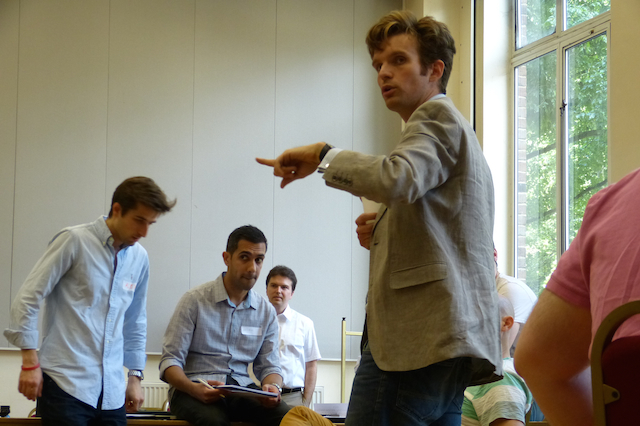Advanced conceptual design thinking
A two-day intensive course that to help experienced practitioners take their design skills to the next level.
Conceptual design is at the heart of what many engineering and construction companies do. Any time a member of staff is faced with a problem to solve and a blank piece of paper in front of them, they are doing conceptual design. It is this creative act that shapes everything that follows. It is where the key decisions are made that can determine the ultimate success – or failure – of a project.
And yet despite the importance of conceptual design, there existed until now no formal training methodology for experienced professionals in the engineering and construction sectors to develop their conceptual design skills.
Think Up’s Conceptual Design Thinking training programme is built on two premises:
- Everyone can be a designer
- Design is a process built upon skills that anyone can practise and eventually master.
The aim of this programme is to build an individual’s capacity to do conceptual design both alone and in the wider organisational and design team context. The course uses as its basis the design process diagram that we present as a model for understading how design skills can be developed.
‘Learn to understand and practice the thought process and actions behind great conceptual design’ – John Gerrard, Expedition Engineering
Deep-immersion face-to-face training
Our conceptual design training is based around understanding several conceptual frameworks for design, the development
of specific skills in support of the design process and the adoption of appropriate attitudes with respect to design. We introduce the conceptual framing and the key skills in an intensive three-day residential training course. We take this approach because in our experience this is the best way to give the participants enough time to think deeply about the value of design, to think critically about their own approach, and to transform their attitudes. Participants leave this part of the training with an understanding of theoretical frameworks for conceptual design, a range of skills which they can apply and develop in the workplace, and motivation to improve their own and others’ ability to do conceptual design.
Background
The Think Up’s Advanced Conceptual Design Thinking programme is built on over fifteen years’ experience of testing and developing approaches to teaching design that began with setting up the Creative Design course at Imperial College in 2000.
In the years since we have adapted and honed our approach working with a wide range of international audiences including at UCL, Yale and Cambridge. In 2015 we collaborated with Arup to design and deliver a major internal global training programme on conceptual design. The next design iteration in our design training was delivered to Expedition Engineering. This year, we return to Imperial college to join the Creative Design teaching course. All of this experience has informed the design of this unique training course.
